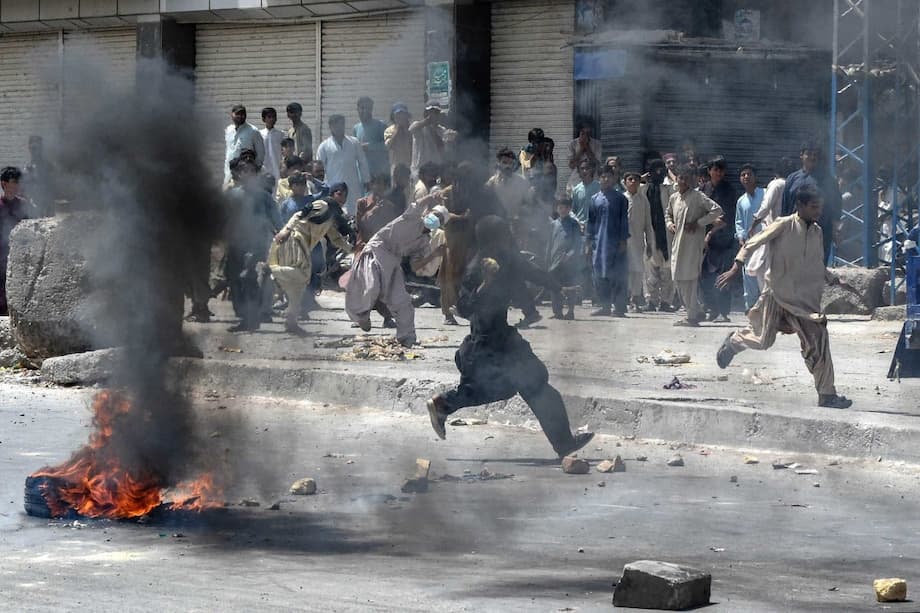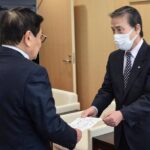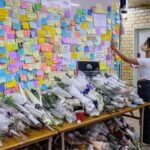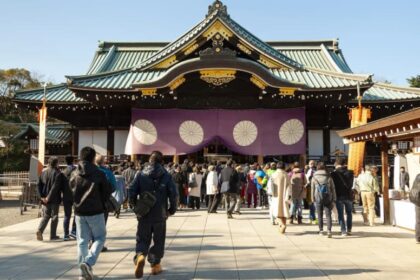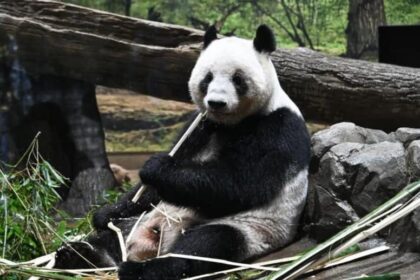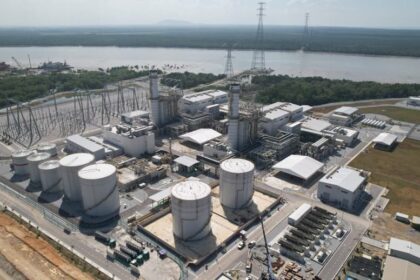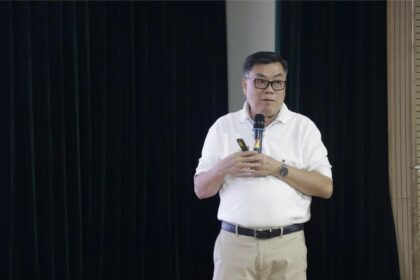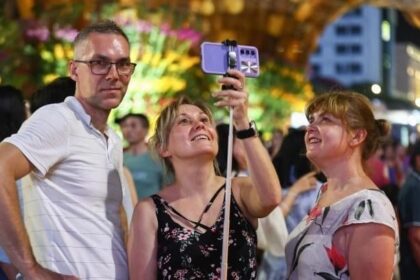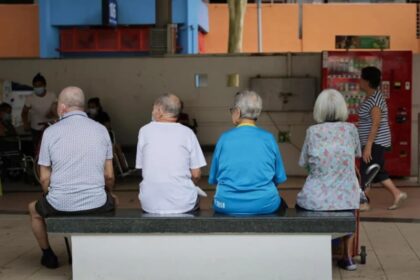A province on edge after a deadly blast
Police in Pakistan’s vast and impoverished Balochistan province fired tear gas and arrested large numbers of demonstrators as a province wide strike shut markets and choked roads on Monday. The action came one week after a suicide bomber struck a political rally in Quetta on September 2, killing 15 people and renewing fears about a resurgent militant threat. The Islamic State group said its regional affiliate had carried out the attack, injecting new urgency into longstanding security and governance grievances in the province.
- A province on edge after a deadly blast
- What sparked the strike
- Police crackdown and the legal backdrop
- Voices from the ground
- A pattern of repression and protests
- Militancy and the tangled security map
- Why Balochistan remains volatile
- Attacks around protests heighten fear
- Government response and calls for accountability
- What to Know
Across more than a dozen cities, businesses closed and crowds marched, demanding answers about how a bomber reached a rally site and who enabled the attack. In Quetta, the provincial capital, police moved to clear sit-ins and road blockades, clashing with protesters in several spots and using tear gas to disperse groups gathered near major intersections. By evening, authorities reported that 260 people had been arrested, a figure that exceeded early estimates that spoke of dozens detained.
Senior Police Superintendent Muhammad Baloch said officers would respect peaceful assembly but would not permit forced closures or road jams that paralyze daily life. He framed the response as an effort to balance public order with civil liberties.
Before the day’s operations, Baloch had warned demonstrators against coercing shopkeepers or blocking highways. Introducing his position, he said the right to protest did not include shutting the city down.
“People have the democratic right to protest peacefully, but they have no right to force people off the roads, disrupt vehicle traffic, or compel businesses to close,” said Senior Police Superintendent Muhammad Baloch.
What sparked the strike
The strike followed a suicide blast at a Balochistan National Party gathering in Quetta, where supporters had assembled in a stadium parking area for a political rally. Fifteen people were killed and many others wounded. The Islamic State, through its Khorasan Province branch (ISKP), claimed responsibility. The attack pierced an already fragile sense of security in a province long caught between extremist violence, separatist insurgency, and a heavy security footprint.
ISKP has staged high casualty attacks in Afghanistan and Pakistan over the past several years. In Balochistan, the group has targeted political events, security personnel, and religious minorities. Its return to the headlines after the Quetta blast unsettled residents who recall earlier waves of bombings and assassinations that battered the province’s social fabric.
The rally’s organizers and opposition parties demanded a transparent investigation into the security lapses. They also called for accountability from officials responsible for protecting a scheduled political event where senior figures had appeared shortly before the blast.
Police crackdown and the legal backdrop
Authorities cited legal restrictions on public gatherings to justify many of the arrests. In Quetta, Section 144 of the Code of Criminal Procedure was in effect, a measure that allows local administrators to ban assemblies when they fear a risk to public order. Police accused protesters of violating the ban, blocking highways, and forcing shopkeepers to shut their doors. Officers used tear gas to push crowds back from major arteries, describing the operation as necessary to reopen traffic and prevent confrontations.
By midday, reports of closures along the N 25 highway around Quetta and other choke points began to circulate. Political alliances backing the strike said routes to airports and railway stations would be blocked. Images of shuttered shops spread on social media, while business groups and school associations in Quetta said they would close for the day in solidarity or out of caution. The strike, called by a cluster of opposition parties including the Balochistan National Party’s Mengal faction along with regional and national allies, was meant to display province wide unity around a single demand: identify and punish those behind the bombing.
Provincial officials insisted they supported peaceful protest but would act if gatherings turned into forced closures or road seizures. Police spokespersons said detentions would continue where crowds disrupted traffic or threatened to escalate confrontations with officers, and that charges would follow in line with the public order restrictions.
Voices from the ground
Balochistan National Party leader Akhtar Mengal, a prominent nationalist politician, accused the state of failing to safeguard citizens at a lawful political event. Opposition leaders repeated calls for a thorough inquiry into the bombing and criticized what they described as a pattern of heavy handed policing when people take to the streets after attacks.
“Isn’t the state responsible for this? Wasn’t it the duty of the state to protect these innocent people?” BNP leader Akhtar Mengal asked during the strike.
Party organizers urged people across tribal, political, and class lines to stand together. Families of victims pressed for clarity, saying they want investigators to share credible findings and for any officials who ignored warnings or failed to secure the rally site to be held to account.
A pattern of repression and protests
Human rights groups say the crackdown on Monday fits a wider pattern. During a wave of Baloch civil rights demonstrations in mid 2024, Amnesty International condemned the use of force, including live fire and sweeping arrests, against participants in the Baloch Raji Machi protest caravans. Amnesty named several organizers who were detained and called for the release of all those arrested for exercising their right to peaceful assembly. The group also criticized the repeated suspension of mobile and internet service in the province, arguing that network shutdowns restrict movement, block information flows, and can increase risks in tense situations.
Local activists say public order bans and rolling blackouts of communications have become routine whenever protests grow. During those 2024 demonstrations, rights organizations documented roadblocks, detentions whose locations were not immediately disclosed, and the imposition of citywide assembly bans in Quetta. The Human Rights Commission of Pakistan criticized the use of excessive force and the curbs on connectivity, warning that blanket restrictions heighten distrust.
Protest leaders, including the Baloch Yakjehti Committee, have centered their campaigns on civil, political, and economic rights. Their demands include an end to enforced disappearances, accountability for extrajudicial killings, and transparent policing. The movement’s supporters say they want political channels that work, not only security responses that deepen the cycle of anger.
Militancy and the tangled security map
Balochistan faces overlapping threats, which makes policing protests particularly fraught. The province has endured a decades long separatist insurgency led by armed Baloch nationalist groups, alongside attacks by extremist outfits such as ISKP. Separatist factions like the Baloch Liberation Army have evolved from sporadic ambushes to more coordinated operations, including complex attacks on security convoys and infrastructure. Analysts note that since the late 2010s, the insurgency has shown greater organization, recruitment among educated youth, and a more visible media presence that amplifies its actions.
Recent years brought incidents with disputed narratives and high casualty claims. A major train hijacking in Balochistan drew competing accounts from the state and insurgents, and independent verification proved difficult in the information vacuum that often surrounds remote areas. Soon after, suicide bombers targeted a paramilitary convoy near Noshki. Those attacks, coupled with routine assaults on checkpoints and road closures by militants, have stretched security forces and magnified public unease.
The threats also have a cross border dimension. Pakistani officials say separatist fighters have sought sanctuary or support in neighboring Afghanistan, a claim insurgent leaders deny. Security agencies have alleged that training for suicide bombers and logistics coordination occur outside Pakistan. ISKP, which emerged out of the conflict zones of Afghanistan, claims operations in Pakistan and has used mass casualty tactics in the region. The layered nature of these threats makes attribution complex when attacks hit public gatherings.
To the west, violence in Iran’s Sistan and Baluchestan province adds another strain. In one attack earlier this year, gunmen shot and killed eight Pakistani workers at a workshop in southeastern Iran, an incident claimed by a Baloch armed group. Pakistan and Iran traded sharp statements and coordinated on repatriations and investigations. The killings underscored how communities on both sides of the border are exposed to armed actors that move and organize across rugged terrain.
Why Balochistan remains volatile
Balochistan is Pakistan’s largest province by land area and among its most resource rich, yet it ranks at or near the bottom of national development indicators. Communities complain that wealth from gas fields, minerals, and ports does not translate into schools, healthcare, jobs, or safe roads in their districts. The geography is unforgiving. Towns are distant, security forces are heavily deployed along arterial routes, and state services are spread thin. These conditions make it easier for armed groups to operate and harder for civilians to access the protections and services they need.
Allegations of enforced disappearances and extrajudicial killings have fueled anger for years. Advocacy groups such as Voice for Baloch Missing Persons say thousands have vanished since the mid 2000s and that many families still do not know the fate of their loved ones. The group has reported that more than one thousand bodies of the disappeared have been found over the years, often bearing signs of abuse. The military denies responsibility for such abuses. The perception of impunity has nonetheless eroded trust in political institutions and encouraged some young people to turn to armed groups that promise retribution.
Development projects have brought their own tensions. Gwadar, a deep sea port on the Arabian Sea and a centerpiece of the China Pakistan Economic Corridor, has become a focus of protest in recent years. Local groups accuse authorities of closing off large zones without local consent and failing to protect livelihoods, while the state frames restrictions as necessary for security. Communications blackouts and intermittent curfews during periods of unrest have amplified the sense that the public has little say over decisions that reshape their towns.
Attacks around protests heighten fear
Protests and political marches in Balochistan have themselves been targeted. Earlier this year, a suicide bomber detonated near a sit in rally linked to the Balochistan National Party’s march to Quetta, according to local authorities. The explosion struck near Luk Pass in Mastung district. Officials said no casualties were reported. Party leaders remained at the scene and continued their program. The march had demanded the release of Baloch rights activists, including physician and campaigner Dr. Mahrang Baloch, who had been arrested under anti terrorism laws. Police had earlier clashed with marchers and detained supporters in operations around Mastung and on the approach to Quetta.
Other media reported a blast near a protest camp set up against the arrests of prominent rights defenders. The demonstration, tied to calls for freeing detainees and ending crackdowns on sit ins, reflected a wider civil rights movement that includes many families of the disappeared. United Nations experts and rights organizations have urged Pakistan to release peaceful protesters and to end practices that criminalize dissent.
The strike that followed the September 2 bombing in Quetta drew on that same reservoir of grievance. People came out to honor those killed and to press the state for protection at political gatherings. They also protested what they view as a default to force when citizens assemble, even after terror attacks that traumatize communities.
Government response and calls for accountability
Government officials say they are investigating the Quetta blast and will prosecute anyone involved. Provincial leaders have repeated that citizens can gather peacefully, while warning that authorities will move if protests block emergency services, shut down highways, or threaten public safety. The province’s leadership has also said it remains in contact with opposition parties to reduce tensions and avoid clashes during rallies, sit ins, or marches.
Opposition parties want a credible, public accounting of security lapses around the rally and a timeline for findings. Civil society groups argue for restraint by police, a halt to mass detentions under blanket public order bans, and a commitment to keep mobile and internet networks open during demonstrations. Community elders have urged both sides to avoid steps that escalate confrontations and to prioritize assistance for victims’ families while investigators work.
What to Know
- Police detained about 260 people during a province wide strike in Balochistan after a suicide bombing at a political rally in Quetta killed 15 people.
- The Islamic State’s regional arm said it carried out the September 2 attack at a stadium parking area where Balochistan National Party supporters gathered.
- Quetta police used tear gas to disperse crowds and cited ongoing restrictions on public assemblies under Section 144 when making arrests.
- Highways and key roads were blocked as opposition parties led the strike; many shops and schools closed across multiple cities.
- BNP leader Akhtar Mengal accused the state of failing to protect citizens and demanded a transparent investigation into security lapses.
- Human rights groups, including Amnesty International and the Human Rights Commission of Pakistan, criticized repeated crackdowns and communications shutdowns during Baloch protests.
- Balochistan faces overlapping threats from ISKP and separatist militants, while cross border dynamics with Afghanistan and Iran complicate security.
- Advocacy groups report thousands of disappearances over the past two decades, a key driver of anger and public protests in the province.
- Authorities say they support peaceful assembly but will act to prevent forced closures or road blockages; opposition parties want a credible, public probe of the blast.
- Investigations into the Quetta attack are underway, with victims’ families and community leaders calling for accountability and restraint.


